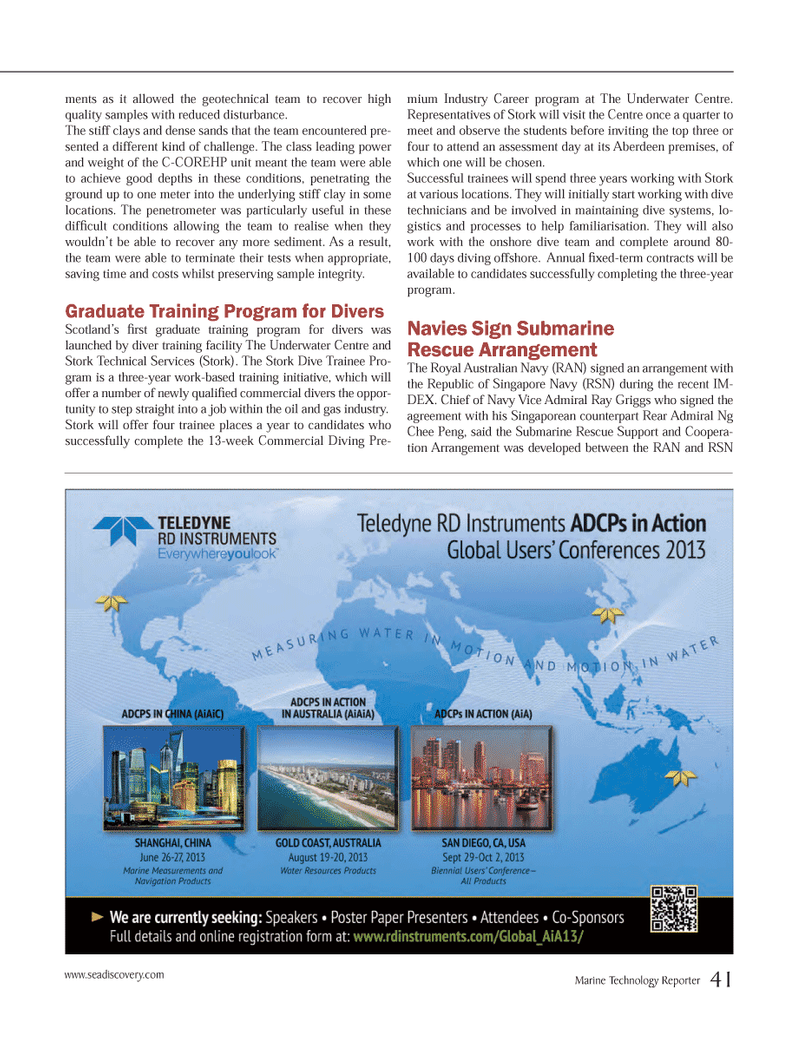
Page 41: of Marine Technology Magazine (June 2013)
AUV Operations
Read this page in Pdf, Flash or Html5 edition of June 2013 Marine Technology Magazine
ments as it allowed the geotechnical team to recover high quality samples with reduced disturbance. The stiff clays and dense sands that the team encountered pre- sented a different kind of challenge. The class leading power and weight of the C-COREHP unit meant the team were able to achieve good depths in these conditions, penetrating the ground up to one meter into the underlying stiff clay in some locations. The penetrometer was particularly useful in these difÞ cult conditions allowing the team to realise when they wouldnÕt be able to recover any more sediment. As a result, the team were able to terminate their tests when appropriate, saving time and costs whilst preserving sample integrity. Graduate Training Program for Divers ScotlandÕs Þ rst graduate training program for divers was launched by diver training facility The Underwater Centre and Stork Technical Services (Stork). The Stork Dive Trainee Pro- gram is a three-year work-based training initiative, which will offer a number of newly qualiÞ ed commercial divers the oppor- tunity to step straight into a job within the oil and gas industry. Stork will offer four trainee places a year to candidates who successfully complete the 13-week Commercial Diving Pre- mium Industry Career program at The Underwater Centre. Representatives of Stork will visit the Centre once a quarter to meet and observe the students before inviting the top three or four to attend an assessment day at its Aberdeen premises, of which one will be chosen. Successful trainees will spend three years working with Stork at various locations. They will initially start working with dive technicians and be involved in maintaining dive systems, lo- gistics and processes to help familiarisation. They will also work with the onshore dive team and complete around 80- 100 days diving offshore. Annual Þ xed-term contracts will be available to candidates successfully completing the three-year program. Navies Sign Submarine Rescue Arrangement The Royal Australian Navy (RAN) signed an arrangement with the Republic of Singapore Navy (RSN) during the recent IM- DEX. Chief of Navy Vice Admiral Ray Griggs who signed the agreement with his Singaporean counterpart Rear Admiral Ng Chee Peng, said the Submarine Rescue Support and Coopera-tion Arrangement was developed between the RAN and RSN www.seadiscovery.com Marine Technology Reporter 41MTR #5 (34-48).indd 41MTR #5 (34-48).indd 416/3/2013 1:30:14 PM6/3/2013 1:30:14 PM

 40
40

 42
42
